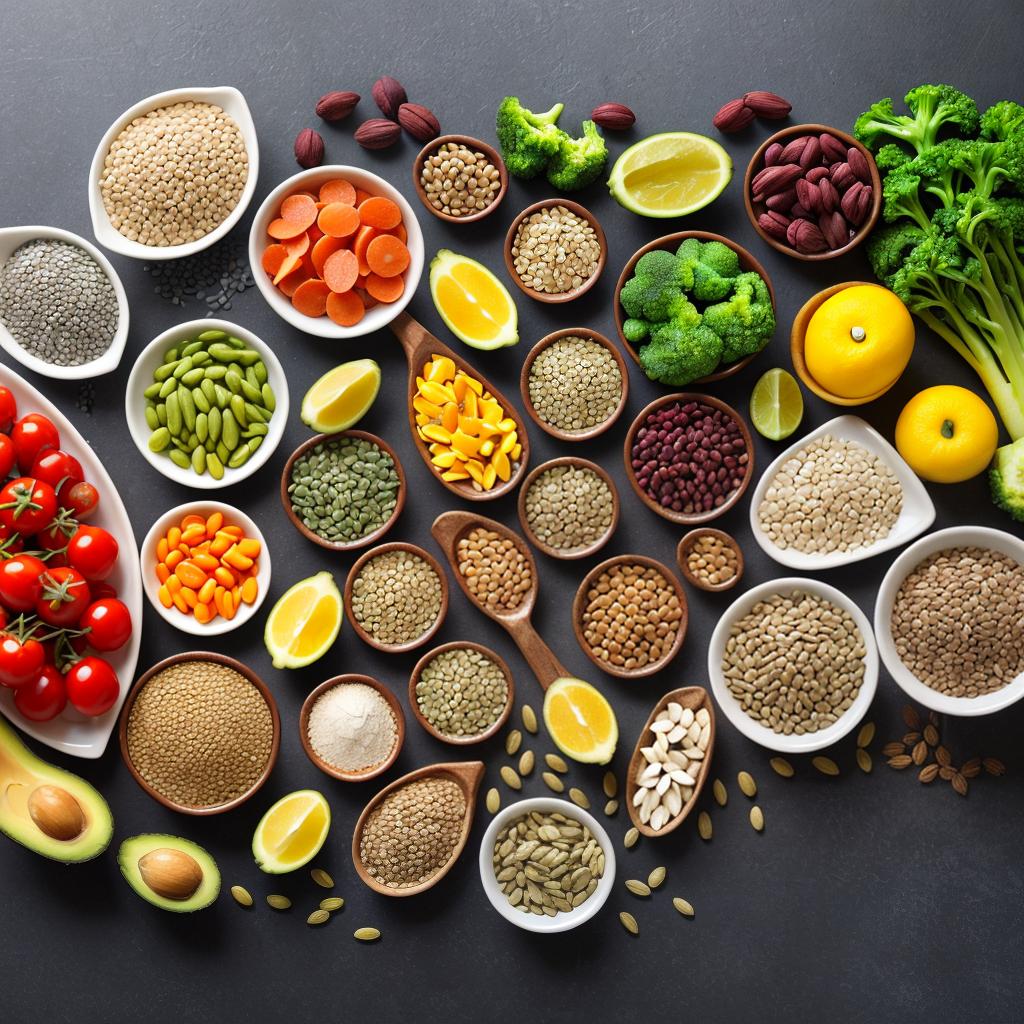Maintaining optimal health requires a balanced diet that provides your body with the essential nutrients it needs to function properly. These nutrients are the building blocks for a healthy body and mind, supporting everything from energy production to immune function and overall well-being. In this comprehensive guide, we’ll explore the ten essential nutrients your body requires for optimal health and how you can incorporate them into your daily diet.
1. Protein
Protein is essential for the growth, repair, and maintenance of tissues in your body. It’s crucial for building muscle, enzymes, hormones, and antibodies. Good sources of protein include lean meats, poultry, fish, dairy products, legumes, and tofu.
2. Carbohydrates
Carbohydrates are the body’s primary source of energy. They provide fuel for your brain and muscles, making them vital for daily activities. Whole grains, fruits, vegetables, and legumes are excellent sources of complex carbohydrates that provide sustained energy.
3. Fats
Fats are essential for various bodily functions, including cell structure, hormone production, and the absorption of fat-soluble vitamins. Opt for healthy fats found in avocados, nuts, seeds, and olive oil while limiting saturated and trans fats.
4. Fiber
Fiber is crucial for a healthy digestive system and can help prevent various digestive issues. It also aids in maintaining stable blood sugar levels and supports heart health. Whole grains, fruits, vegetables, and legumes are rich sources of dietary fiber.
5. Vitamins
Vitamins are organic compounds that play numerous roles in maintaining health. Here are some essential vitamins:
a. Vitamin A
Vitamin A is essential for vision, immune function, and skin health. It can be found in foods like sweet potatoes, carrots, spinach, and liver.
b. Vitamin C
Vitamin C is an antioxidant that supports the immune system and skin health. Citrus fruits, strawberries, and broccoli are excellent sources.
c. Vitamin D
Vitamin D is crucial for bone health and immune function. Sun exposure and fortified foods like dairy products and cereals can provide this vitamin.
d. Vitamin E
Vitamin E is an antioxidant that helps protect cells from damage. Nuts, seeds, and vegetable oils contain vitamin E.
e. Vitamin K
Vitamin K is necessary for blood clotting and bone health. Leafy greens like kale, spinach, and broccoli are rich in vitamin K.

6. Minerals
Minerals are inorganic nutrients that your body needs for various functions. Here are some essential minerals:
a. Calcium
Calcium is crucial for strong bones and teeth, muscle function, and blood clotting. Dairy products, leafy greens, and fortified foods are good sources.
b. Iron
Iron is necessary for carrying oxygen in your blood. Red meat, poultry, beans, and fortified cereals are iron-rich foods.
c. Magnesium
Magnesium plays a role in muscle and nerve function, bone health, and energy metabolism. Nuts, seeds, whole grains, and leafy greens are excellent sources.
d. Potassium
Potassium helps regulate blood pressure and supports muscle and nerve function. Bananas, potatoes, and leafy greens are potassium-rich foods.
e. Zinc
Zinc is essential for immune function, wound healing, and DNA synthesis. It can be found in meat, dairy products, and legumes.
7. Water
Water is often overlooked but is perhaps the most critical nutrient. It helps maintain body temperature, transport nutrients, remove waste, and lubricate joints. Stay hydrated by drinking enough water throughout the day.
8. Omega-3 Fatty Acids
Omega-3 fatty acids are essential for brain health, reducing inflammation, and supporting heart health. Fatty fish like salmon and flaxseeds are good sources.
9. Antioxidants
Antioxidants like selenium, copper, and manganese help protect cells from damage caused by free radicals. Nuts, seeds, whole grains, and fruits are rich in antioxidants.
10. Choline
Choline is crucial for brain development, liver function, and nerve function. Eggs, lean meats, and cruciferous vegetables are sources of choline.
Now that we’ve covered the ten essential nutrients, it’s important to remember that a balanced diet is key to ensuring you get an adequate supply of these nutrients. Variety in your diet ensures you cover all your nutritional bases.
FAQs
Q1: Can I get all these nutrients from a vegetarian or vegan diet?
Yes, you can get all these essential nutrients from a vegetarian or vegan diet with proper planning. Plant-based sources of protein, such as beans, tofu, and quinoa, can provide the necessary amino acids. You can also obtain vitamins and minerals from fruits, vegetables, nuts, and seeds. Consider consulting a registered dietitian to ensure you meet your nutritional needs.
Q2: How can I ensure I get enough fiber in my diet?
To ensure an adequate fiber intake, include whole grains, legumes, fruits, and vegetables in your meals. Opt for whole grain bread, brown rice, and whole wheat pasta instead of their refined counterparts. Snack on fresh fruits and raw vegetables, and consider adding beans or lentils to soups and salads.
Q3: Should I take supplements to meet my nutrient requirements?
Supplements should not be your primary source of essential nutrients. It’s best to obtain these nutrients through a balanced diet. However, in some cases, such as vitamin D deficiency or under specific medical conditions, supplements may be recommended by a healthcare professional.
Q4: How much water should I drink daily?
The amount of water you need can vary based on factors like your age, activity level, and climate. As a general guideline, aim for at least eight 8-ounce glasses of water a day, commonly referred to as the “8×8” rule. However, listen to your body’s thirst cues and adjust your intake accordingly.
Conclusion
Optimal health is achievable by providing your body with the essential nutrients it needs. A well-balanced diet that includes a variety of foods rich in proteins, carbohydrates, fats, vitamins, minerals, and other nutrients is the foundation of a healthy lifestyle. Remember to stay hydrated with plenty of water and consult with a healthcare professional or registered dietitian for personalized dietary recommendations. By nourishing your body with these essential nutrients, you can enhance your overall well-being and lead a healthier, happier life.
